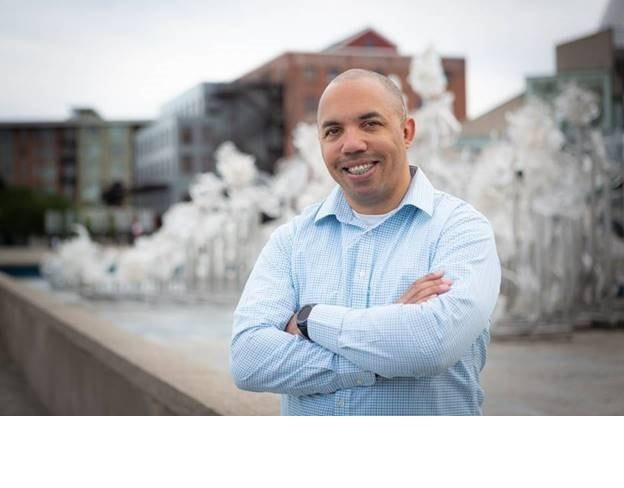|
Edwina Martin- Arnold– Build Co-Chair,–office of Chief Equity and Inclusion at DSHS. Under the secretary Author. Entrepreneur, has worked with both County and State Gov. Interview Questions for Edwina Martin Arnold – BUILD Co—Chair 1. Where did you start in state government? ‘I’ve worked in state government for most of my life. I started just after receiving my law degree in 1991 and have worked at many different agencies over the years. Currently I am with DSHS as the Chief Officer of the Equity and Inclusion Department.  2. Tell us about your background: After receiving my law degree, I went to work for state government as a prosecutor. After that, I took some time off to be at home with my children and during the time they were growing up, I stepped away from state government and did some entrepreneurial work. I owned 3 different businesses; a restaurant, a club and a barber shop (I still own this the Barber Shop: Major League Barber and Beauty) In 2012, I returned to state government and worked with DSHS, in their Juvenile Rehabilitation program. Then I worked with the Office of Minority and Women Business Enterprises where I started out certifying businesses but worked my way up to Assistant Director of Legal and Policy. My next move was with Sound Transit’s Diversity Office, then to Skanska, a private Global project contractor. I was their Diversity Manager for WA and OR. After this experience of working for a private for-profit company, I decided I liked government work best, so I returned and went to WA Department of Transportation (WDOT) at the office of Equal Opportunity. I was the Assistant Title VI Coordinator. What did you do in this role? My work was to ensure that DOT was not discriminating. Many of our projects receive federal funds. I also worked to ensured meaningful access –which means that all Limited English Proficiency speakers have access to the same information that English proficient speakers do about large projects such as new highways and roads. In this role, I also worked to ensure Environmental Justice. What is Environmental Justice? Well, historically, bad things are put into minority communities. Things like pollution or landfills. My work was to advocate that the placement of these kinds of things be more fairly dispersed. For example, when I-5 was put in, it went straight through Asian and Black communities, because it was the path of least resistance. In May, I accepted a position with DSHS to be Chief of Equity Diversity and Inclusion, and also recently became Co-Chair position with BUILD. When I’m not busy with my job and my business, I also write and publish Romance books. I have published with Harlequin and all the stories are all set in Seattle. The latest one is a story of an inter-racial romance and is called Vanilla Chocolate. All of my books are available on Amazon. 3. Tell us about your skills - I am a lawyer and I have leadership skills. I want to use these skills improve experiences –my own and others. I want to help accomplish the mission of BUILD. I want to bring more diversity to leadership positions across the state and reduce the turnover of Black employees. Currently the turnover rate is at 20% and I would like to see this decreased. I think I can help in these areas 4. Where do you see yourself in the future? I just started a new position and am also new to leadership with BUILD. I will be settling into both of these new roles and want to be an ongoing contributing member of BUILD. 5. What lead you to be in this group (BUILD)? I heard about Black people getting together, so I had to see what was happening. I started out helping out with bringing health and wellness information to BUILD, and I worked on the History Committee. I saw it as an opportunity for fellowship, advice sharing, and a place to come together to help our state by working together to increase cultural competency, create more inclusive environments in the workplace and help to bring more Black people into leadership positions. 6. What value do you see in BUILD? Fellowship. It’s easy to just get tired and give up. Micro aggressions in the workplace are very difficult to navigate and this is a place where we can come together to replenish and connect. The wider value is what we can bring to state government by sharing our viewpoint. BUILD is now being asked a lot to bring their perspective, and “giving voice to the Black perspective” is part of our mission. 7. Would you recommend others to join BUILD? If so, why? Yes, if you agree with the purpose. Absolutely, join. The current environment shows systematic racism so the people more we can have in BUILD, the better we can address those concerns. Anybody who agrees with the mission should come join us. 8. Where do you see BUILD in the near future? Keep on doing what we are doing. Where do you see BUILD in the distant future? Being congratulated for helping to achieve our mission and purpose – such as more blacks represented in leadership. Affecting legislation, such as the Governor’s Executive Order on Juneteenth, and on Black Lives Matter. Both of those policy decisions were influenced by BUILD because we shared the black perspective. Interview from July 2020. Comments are closed.
|
AuthorSOur blog includes but is not limited to events, insights, and highlights to augment basic education. Archives
July 2024
|
 RSS Feed
RSS Feed